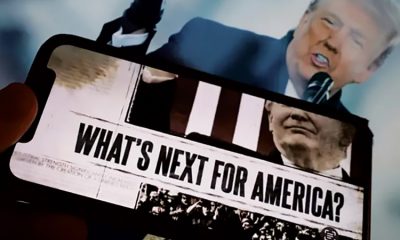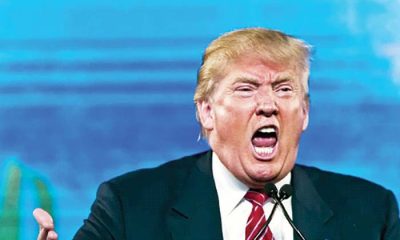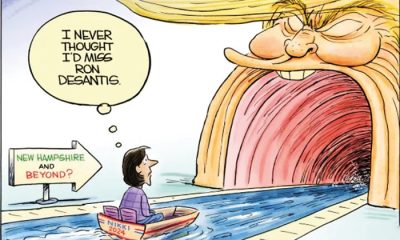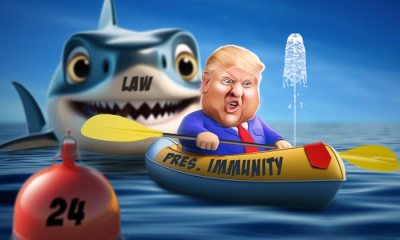Features
Trump pleads not guilty to four Felony Charges in January 6 probe
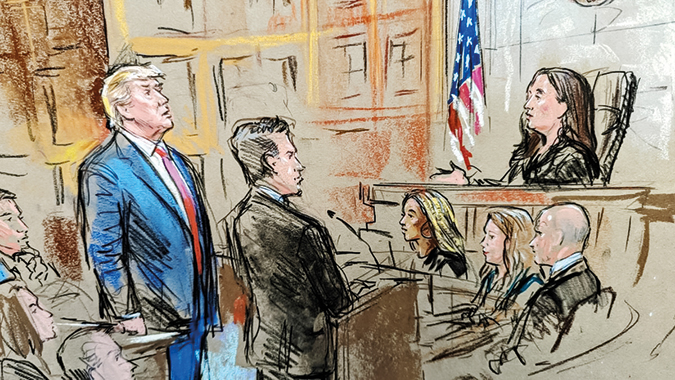
Arraigned on charges he conspired to stay in office
By Vijaya Chandrasoma
Following an investigation by Special Counsel Jack Smith, a Washington D.C. grand jury charged, on August 1, 2023, the former President Donald Trump for his direction of a conspiracy to overturn the 2020 election, inciting his supporters to storm the US Capitol on January 6, 2021. The four charges were: conspiracy to defraud the United States, witness tampering, acting against the (voting) rights of citizens and attempting to obstruct an official proceeding.
The government summoned Trump to appear for arraignment in Washington D.C. federal court on Thursday, August 3, presided over by Magistrate Judge Moxila Upadhaya.
Law enforcement had taken all measures necessary to control any violence threatened on Trump’s arrest, although similar threats had not materialized during his previous arrests in Manhattan and Miami. The predictions of “death and destruction” and “blood in the streets” previously made by Trump and Senator Lindsay Graham, respectively, if Trump was arrested, were grossly optimistic. Quite the contrary. A handful of pro-Trump supporters and anti-Trump protesters, holding picturesque signs were outnumbered by hordes of national and international media gathered to cover the event.
When Trump finally appeared at the court as scheduled, his demeanor was both apprehensive and somber. It was quite a moment when the clerk called out the case, the United States v. Donald J. Trump, just a few yards away from the scene of the crime of which he was being accused. Magistrate Judge Upadhaya reminded him of his rights. Then she said, “You will be released on very limited conditions. One, that you don’t commit a new crime while on release, and two, that you don’t retaliate against anyone you think is a witness, and only talk to such witnesses in the presence of their lawyers”. Trump said he understood the conditions, sat down with his lawyers, appearing to be angry, his hands clasped, all the time staring at Special Counsel, Jack Smith who was seated 50 yards away.
He pleaded Not Guilty on all charges
The Magistrate Judge assured Trump that he would get a fair and speedy trial in this courthouse. The next hearing, fixed for August 28, will be presided over by District Court Judge Tanya Chutkan, who has been randomly so assigned.
On his departure from the DC courthouse, Trump spoke to reporters, saying, “When you look at what’s happening, this is the persecution of a political opponent. This was never supposed to happen in America. This is the persecution of the person that’s leading by very, very substantial numbers in the Republican primary and leading Biden by a lot. So, if you can’t beat him, you persecute him or prosecute him. We can’t let this happen in America”.
Tanya Chutkan is a District Court Judge from the District of Columbia. She will be familiar to the Trump team, to whom her assignment may be of some concern. In 2021, Judge Chutkan blocked Trump’s efforts to stop a Congressional committee’s bid to access his White House papers, with the famous comment, “Presidents are not kings, and the plaintiff is not the president”. She is generally considered to be a consummate professional, a no-nonsense judge conscious of the due process rights of the defendant, “who will handle a sensitive case with utmost care. She is likely to do what is in her power to protect the former president’s rights as a criminal defendant”.
Trump now faces 78 criminal charges from three jurisdictions, a record that will only be broken by Trump himself, when Fulton County, Georgia District Attorney, Fani Willis frames charges against him on criminal attempts to overturn the 2020 election in her county. She recently said, “We are ready to go”, so new indictments for Trump are imminent. Maybe he’ll hit three figures in charges before long. The Donald Bradman Trump of Felonies!
The charging document includes six co-conspirators. Their identities have been withheld because they have not as yet been charged with any crimes. Five have been identified as Rudi Giuliani, John Eastman, Sidney Powell and Kenneth Chesebro (Trump attorneys), and former Department of Justice official, Jeffrey Clark. The sixth co-conspirator still remains unidentified, but is believed to be a longtime political associate of Trump.
Jack Smith has not charged these co-conspirators as he may be hopeful one or more will enter into a plea agreement and co-operate with the prosecution.
Of course, knowing that Trump’s loyalty is exclusively to Trump, he is quite capable of throwing one or more of these co-conspirators under the bus, with the allegation that he was “misled” by them, that their advice had convinced him that he had no criminal intent in inciting the insurrection.
Another defense proffered by Trump’s lawyers is that his speech from the ellipse to the rally before the insurrection, when he urged his supporters, “We fight like hell. And if you don’t fight like hell, you’re not going to have a country any more”, was covered by First Amendment rights of free speech; it had nothing to do with the violence that immediately followed at the Capitol. Like Hitler’s Big Lie rants that Germany lost World War I because the Germans were betrayed by the Jews had nothing to with the holocaust.
The fact that Mark Meadows, Trump’s Chief of Staff, has not been named as a co-conspirator was a massive surprise. He was the closest to Trump during his Lame Duck presidency between the November election and the January inauguration. He was privy to all the criminal machinations to overturn the election during that period, right up to the 187 minutes when Trump did nothing while the riot at the Capitol was unfolding.
Meadows has been keeping a very low profile over the past few months, supposedly advising the radical wing of the Republican Party. But there has also been some conjecture that he has been cutting a deal with the prosecution. His evidence would deal a death blow to the Trump defense.
Special Counsel, Jack Smith, in a brief statement on Tuesday, said that the Justice Department is “committed to ensuring accountability for those criminally responsible for what happened” on January 6, which he described as “an unprecedented assault on the seat of American democracy”. He added “As described in the indictment, it was fueled by lies. Lies by the defendant targeted at obstructing a bedrock function of the U.S. government, the nation’s process of collecting, counting, and certifying the results of the presidential election”. He added that his office will seek a “speedy trial” for former President Donald Trump. An objective shared by Judge Chutkan, who has set the next hearing for August 28. After hearing defense requirements of time to prepare for the trial, she will set the first trial date. The prosecution has already indicated that it’s ready to go.
These indictments came on top of new felony charges under the Espionage Act, “a superseding indictment” that Jack Smith served on Trump last week, with overwhelming evidence that Trump had instructed his employees to delete security camera footage showing attempts to delete and move top-secret documents. Documents that the Department of Justice had earlier issued a subpoena for their release, which Trump has illegally resisted.
Two low level employees have now been indicted for their roles in this crime. A third, employed in overseeing surveillance cameras at Mar-a-Lago, refused to comply with illegal orders and has co-operated with the Special Counsel. Hopefully, the evidence he has given about Trump’s criminal attempt to delete the server containing incriminating evidence will make an already indefensible case watertight.
When Trump says, “You know they are coming for you, not for me. I am fighting for you, not for me”, he fails to mention that he is using “your” donations to pay the legal fees involved in fighting for “you”. Just this year alone, he has used $40 million+ of “your donations” to the Republican Party PAC for this purpose.
A PAC is an acronym for a Political Action Committee, “an organization that campaigns for particular political policies, and gives money to political parties or candidates who support those policies”. PACs didn’t give monies to gangster Al Capone to pay his legal fees, just as the Republican PACs are not supposed to pay Trump’s personal legal fees for the heinous crimes he has committed. As former Trump Attorney General, Bill Barr said, “it is nauseating and disgraceful for a multi-billionaire like Trump to use donor’s money to pay his legal fees”.
So, my Republican friends, please dig deep and keep sending Trump more money so that he can continue fighting to keep all of you out of prison, for the numerous crimes he has committed.
These new indictments may add to Trump’s legal problems, but they also serve to increase his popularity in the Republican polls. He enjoys a commanding lead over those who have announced their candidatures for the 2024 Republican nomination.
These declared challengers seem to be playing a waiting game. Most of them are not running against him, they are still running towards him, all the time hoping he will implode. As well he may. Even his main challenger in the polls, Florida Governor Ron DeSantis defends him. The others really don’t matter as they are running in low single digits in the polls, struggling to even qualify to participate in the first presidential debate later this month.
Unless a miracle happens in the form of a decent Republican (has that become an oxymoron today?) challenger for the presidency, the Party will be left with a presidential nominee, a convicted felon, campaigning for the 2024 presidency arrested and on bail on more than 100 Class A felonies. A nominee who will have to juggle numerous trial dates per month in cases from four jurisdictions, while campaigning for the highest post in the world. Perhaps wearing ankle bracelets. Perhaps even from prison. And, according to current polls, he still has an even money chance of winning.
Only in America.
Features
How many more must die before Sri Lanka fixes its killer roads?

On the morning of May 11, 2025, the quiet hills of Ramboda were pierced by the wails of sirens and the cries of survivors. A Sri Lanka Transport Board (SLTB) bus, en route from Kataragama to Kurunegala via Nuwara Eliya, veered off the winding road and plunged down a deep precipice in the Garandiella area. At least 23 people lost their lives and more than 35 were injured—some critically.
The nation mourned. But this wasn’t merely an isolated accident. It was a brutal reminder of Sri Lanka’s long-standing and worsening road safety crisis––one where the poor pay the highest price, and systemic neglect continues to endanger thousands every day.
A national epidemic
According to the Central Bank of Sri Lanka’s 2023 Road Safety Report, buses and other passenger vehicles are involved in 60% of fatalities while motorcycles account for 35% of reported accidents. Though three-wheelers are often criticised in the media, they contribute to only 12% of all accidents. The focus, however, remains disproportionately on smaller vehicles—ignoring the real danger posed by larger, state-run and private buses.
The Ramboda incident reflects what transport experts and road safety advocates have long warned about: that Sri Lanka’s road accident problem is not primarily about vehicle type, but about systemic failure. And the victims—more often than not—are those who rely on public transport because they have no other choice.
One of the biggest contributors to the frequency and severity of road accidents is Sri Lanka’s crumbling infrastructure. A 2023 report by the Sri Lanka Road Development Authority (SLRDA) noted that nearly 40% of the country’s road network is in poor or very poor condition. In rural and hilly areas, this figure is likely higher. Potholes, broken shoulders, eroded markings, and inadequate lighting are all too common. In mountainous terrain like Ramboda, these conditions can be fatal.
Even worse, since 2015, road development has effectively stagnated. Although the Mahinda Rajapaksa administration was often criticised for its ambitious infrastructure drive, it left behind a network of wide, well-lit highways and urban improvements. The subsequent administrations not only failed to continue this momentum, but actively reversed course in some instances—most notably, with the cancellation of the Light Rail Transit (LRT) project in Colombo, which had been poised to modernise urban mobility and reduce congestion.
Instead of scaling up, Sri Lanka scaled down. Maintenance budgets were slashed, long-term projects shelved, and development planning took a back seat to short-term political calculations. Roads deteriorated, traffic congestion worsened, and safety standards eroded.
Dangerous drivers
Infrastructure is only part of the story. Human behaviour plays a significant role too—and Sri Lanka’s roads often mirror the lawlessness that prevails off them.
A 2022 survey by the Sri Lanka Road Safety Council revealed alarming patterns in driver behaviour: 45% of accidents involved drivers under the influence of alcohol or drugs, and 40% were attributed to speeding. These figures reflect not just recklessness, but a dangerous culture of impunity.
The legal blood alcohol limit for drivers in Sri Lanka is 0.08%, but enforcement remains lax, particularly in rural areas and during off-peak hours. There is no consistent system of random breath testing, and police checkpoints are often limited to high-profile holidays or urban areas.
The same lack of enforcement applies to speeding, tailgating, overtaking on blind corners, and ignoring traffic signals. While the law technically provides for penalties, in practice, enforcement is selective at best. Even SLTB bus drivers—tasked with transporting hundreds daily—are known for aggressive and erratic driving. The Ramboda bus is reported to have been speeding on a dangerously narrow bend, a pattern that has become disturbingly common.
Public buses, both state-run and private, are some of the most dangerous vehicles on the road today—not just due to their size, but because of operational cultures that prioritise speed over safety. Competition for passengers, poor driver training, minimal vehicle maintenance, and weak regulatory oversight have created a deadly combination.
Do they not deserve better?
Most people who travel in SLTB buses are from lower-income backgrounds. They rely on public transportation not by choice, but by necessity. A factory worker in Nuwara Eliya, a schoolteacher in Bandarawela, or a daily wage earner commuting between towns—all are bound to a public transport system that is increasingly unreliable and unsafe.
Sri Lanka’s social contract has failed its most vulnerable. The poor are expected to brave substandard buses on crumbling roads, driven by underpaid and undertrained drivers, often in hazardous weather and terrain. In many rural areas, buses are lifelines. When one crashes, it is not merely a tragedy—it’s a profound injustice.
Had the LRT system gone forward, had road maintenance been prioritised, had reckless drivers been reined in through strict enforcement, how many lives could have been saved?
Experts agree that the solution lies in a combination of infrastructure investment, driver education, and law enforcement reform. The Sri Lanka Road Safety Council has repeatedly called for mandatory road safety training, particularly for commercial drivers. Such training should cover not just traffic laws, but also defensive driving, fatigue management, and the dangers of DUI.
Enforcement, too, needs a dramatic overhaul. License suspensions, large fines, and jail time for repeat offenders must become the norm—not the exception. A centralised traffic violation database could prevent habitual offenders from slipping through the cracks.
And critically, investment in infrastructure must resume—not in flashy mega-projects for political gain, but in safe, functional, and equitable roads and transit systems. The re-introduction of the LRT or similar mass transit projects should be seriously reconsidered, especially in urban centers where congestion is growing and road space is limited.
The misunderstood three-wheeler
On the other hand, while three-wheelers are frequently vilified in public discourse and media narratives for reckless driving, the data tells a different story. According to the Central Bank’s 2023 Road Safety Report, they account for just 12% of all road accidents—a fraction compared to the 60% involving buses and other passenger vehicles, and the 35% attributed to motorcycles. Yet, disproportionate attention continues to be directed at three-wheelers, conveniently shifting focus away from the far greater risks posed by large, state-run and private buses.
What often goes unacknowledged is the essential role three-wheelers play in Sri Lanka’s transport ecosystem, particularly in remote and rural areas where reliable public transport is virtually nonexistent. For residents of small towns and isolated villages in the hill country, three-wheelers are not a luxury—they are a necessity. Affordable, nimble, and capable of navigating narrow, winding roads where buses cannot operate, these vehicles have become the primary mode of short-distance travel for countless Sri Lankans.
Even more importantly, in the aftermath of road accidents—especially in remote regions like Ramboda—it is often the three-wheeler drivers who are the first to respond. When tragedy strikes, they ferry the injured to hospitals, assist with rescue efforts, and offer immediate aid long before official emergency services arrive. This community-centered, grassroots role is rarely acknowledged in national conversations about road safety, yet it remains a vital, life-saving contribution.
Rather than treating three-wheelers as a problem to be blamed, the government should recognise their indispensable value and work towards integrating them more effectively and safely into the national transport framework. Regularising the sector through measures such as mandatory driver training programmes, periodic vehicle safety checks, and the enforcement of standardised operating licenses could improve safety without displacing an essential service. Additionally, designating official three-wheeler stands, particularly in high-risk or high-traffic areas, and incentivising drivers who maintain clean safety records would help create a safer, more accountable environment for both passengers and pedestrians.
Moving beyond the blame game
It is time for us to move beyond the tired narrative that blames specific vehicles—motorcycles, three-wheelers, or buses—for the carnage on Sri Lanka’s roads. The problem is not the mode of transport. It is the system that surrounds it.
When buses are poorly maintained, roads are not repaired, drivers are not trained, and laws are not enforced, tragedy becomes inevitable. Blaming a single vehicle type does nothing to address these root causes.
The real question is: Do we have the political will to fix this? Or will Sri Lanka continue to count the dead—accident after accident—while doing little more than issuing condolences?
The Ramboda accident was not the first. It won’t be the last. But it should be the turning point.Let this be the moment we stop pointing fingers—and start fixing the road.
(The writer is an Attorney-at-Law with over a decade of experience specializing in civil law, a former Board Member of the Office of Missing Persons, and a former Legal Director of the Central Cultural Fund. He holds an LLM in International Business Law and resides in Battaramulla, where he experiences the daily challenges of commuting to Hulftsdorp, providing him with a unique perspective on Sri Lanka’s road safety issues.)
By Sampath Perera
Features
J’accuse – Need for streamlined investigation of corruption in former President’s office
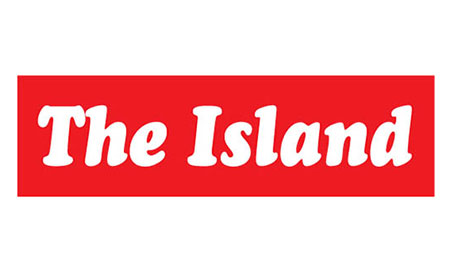
Though the government is moving more slowly on corruption than I would have liked, it is moving, which is more than can be said for its predecessors. I remember how sad I was when Yahapalanaya did very little, except for political advantage, about the corruption it had highlighted in the election campaign in which I had so foolishly joined; but the reason became clear with the bond scam, when the Ranil Wickremesinghe administration rose to heights of corruption that surpassed, in convoluted ingenuity, anything the Mahinda Rajapaksa government could have achieved. Thus far the present government is clean, and that will make its task much easier.
I hope then that the slow but steady progress of this government in investigation will bear fruit. But at the same time, I think it would also be good if it looked at instances when corruption was avoided. The horrors of the visa scam, in which the Controller General of Immigration seems to have connived with his political masters, suggest how important it is to also praise those civil servants who resist pressures.
With regard to the visa scam, I had thought Tiran Alles largely responsible, but perhaps I have done the man an injustice – if that were conceivable – and the fountainhead of the matter was the President. I now think this the more likely, having heard about a Civil Servant who did stand up against the political pressures brought upon him. If this government were to look into the matter, and recognise his integrity and courage, perhaps that would prompt the former Controller General of Immigration and Emigration too to come clean and turn Crown Witness, having accepted a compounded penalty for anything he might have done wrong.
It can be difficult to resist pressure. That must be understood though it is no reason to excuse such conduct. But it is therefore more essential to praise the virtuous, such as the former Secretary to the Ministry of Health, Dr Palitha Mahipala. I had heard of him earlier, and I am sorry he was removed, though I have also heard good things about his successor, so there is no reason to bring him back. But perhaps he could be entrusted with greater responsibilities, and awarded some sort of honour in encouragement of those with courage.
One of the notable things Dr Mahipala did was to resist pressure brought upon him to award a contract to Francis Maude, a British crony of the President. This was to design a supply chain management for pharmaceuticals. A system for this was already being designed by the Asian Development Bank, but when told about this the authorities had nevertheless insisted.
The then Secretary to the Prime Minister cannot absolve himself of the responsibility for having asked the Ministry of Health to prepare a stunningly expensive MoU that was quite unnecessary.
But his claim was that he had been introduced to the Britisher by a top aide of the President. This rings true for it was the President who first wished Maude upon the country. It was after all Ranil Wickremesinghe who, a year after he became President, announced that, to boost state revenue, Maude had been invited ‘to visit Sri Lanka and share his insights on sectoral reform’.
When he became a Minister under David Cameron, Maude’s responsibilities included ‘public service efficiency and transparency’. There seems to have been nothing about revenue generation, though the President’s statement claimed that ‘Sri Lanka must explore new avenues for increasing income tax revenues…He expressed concern over not only the neglect of public revenue but also the unrestricted spending of public funds on non-beneficial activities’.
He ‘called for an extensive media campaign to educate the public’ but this did not happen, doubtless because transparency went by the board, in his antics, including the demand, whoever prompted it, that Maude be to do something already done. Surely, this comes under the heading of unrestricted spending of public funds on non-beneficial activities, and it is difficult to believe that top government officials connived at promoting this while Ranil would have expressed concern had he known what they were up to.
Nothing further is recorded of Ranil’s original trumpeting of Maude’s virtues, and far from being there to provide advice on the basis of his experience in government, he seems to have been trawling for business for the firm he had set up on leaving politics, for it was with that private agency that the MoU was urged.
Thankfully, Dr Mahipala resisted pressure, and that plot came to nothing. But it should not be forgotten, and the government would do well to question those responsible for what happened, after speaking to Dr Mahipala and looking at the file.
Indeed, given the amount of corruption that can be traced to the President’s Office, it would make sense for the government to institute a Commission of Inquiry to look into what happened in that period of intensive corruption. It should be subject to judicial appeal, but I have no doubt that incisive questioning of those who ran that place would lead to enough information to institute prosecutions, and financial recompense for the abuses that occurred.
by Prof. Rajiva Wijesinha
Features
Trump’s Press Secretary; no attention to the health crisis

 In her Cry on 25 April, Cassandra wrote this in her section on Trump’s moves to Make America Great Again – MAGA. “The latest was heard on BBC news on Wednesday 16. A fluff of a blonde White House press secretary by name of Karoline Leavitt announces that President Trump expects Harvard University to apologise to him for the continuing tolerance of anti-Semitism by the university. And that little blonde fluff adds ‘And they should.’ Didn’t Cass guffaw, but bitterly. That’s Trump vs Harvard.”
In her Cry on 25 April, Cassandra wrote this in her section on Trump’s moves to Make America Great Again – MAGA. “The latest was heard on BBC news on Wednesday 16. A fluff of a blonde White House press secretary by name of Karoline Leavitt announces that President Trump expects Harvard University to apologise to him for the continuing tolerance of anti-Semitism by the university. And that little blonde fluff adds ‘And they should.’ Didn’t Cass guffaw, but bitterly. That’s Trump vs Harvard.”
Karoline Leavitt
This young blonde has been making waves ever since, so much so that night shows in the US have spoken of her, and not well. Jimmy Kimmel arranged a dialogue between Karoline and Mark Carney, PM of Canada, when he recently visited the US. She insulted him by saying he did not know what democracy was and that Canada would benefit by becoming the 51st of the US. Carney vowed Canada was not for sale and never would be. The interview which was described in a video which I watched got hotter, Carney became cooler and Karoline rattled until she shot up and left the room. The usually noisy crowd that collects to listen to Kimmel roared – disdain.
Cass had to ferret more about her, so she went to the Internet. Born in 1997, Karoline Leavitt studied politics and communication at Saint Anselm College, which she entered on a games scholarship. She interned in the White House as an apprentice press secretary and was named a press secretary in Trump‘s first term. After Trump’s loss in 2020, she became a communications director for New York. She was the Republican candidate in the US House of Reps election for New Hampshire in 2022 but lost. She was much in Trump’s campaign against Biden’s winning and then served as a spokeswoman for MAGA Inc. In November 2024, Trump named her his White House Press Secretary, the youngest to hold this post in US history. All this seems to have gone to her blonde head!
Mosquitoes making life hell in Colombo
These pests are breeding like mad in and around Colombo and other parts of the country too. We can be tolerant of nature and its creatures, but the mosquito now is deadly. She passes on the dreaded diseases of chikungunya and dengue; the former debilitating for months after the grueling ache in bones is abated as the infection recedes. Dengue can be fatal if one’s platelet count goes below the red line.
The crux of the near pandemic of these two diseases is that infection and prevalence of the two could be greatly reduced by control of the carrier of the infection – The Mosquito. And on whom rests the responsibility of controlling the breeding of mosquitoes? On You and Me. But both of these entities are often careless, and totally non-caring about keeping their premises clean and of course eliminating all breeding spots for flying pests. Does the responsibility end there? Not upon your life! The buck moves on and lands on the public health inspectors, the garbage removers, the fumigators. Their boss who sees to them working properly is the Medical Officer of Health. And he is part of the Colombo Municipal Council that has the responsibility of looking to the health of people within the MC.
The spread of the two diseases mentioned is proof that the above persons and establishments are NOT doing the work they should be doing.
It is a proven fact that just before a change in personnel in the country, or a MC or a Pradeshiya Sabha, with a general election or local government election in the near future, most work stops in government offices or in local government establishments as the case may be. Workers get the disease of ennui; do minimum work until new bosses take over.
This definitely has happened in Colombo. Cass lives in Colombo 3. Quite frequent fumigation stopped some time ago. About two weeks ago she heard the process and smelled the fumes. Then nothing and mosquitoes breeding with the infrequent rain and no repellents or cleaning of premises. She phoned the MOH’s office on Thursday last week. Was promised fumigation. Nothing.
We are in a serious situation but no Municipal Council action. Politics is to blame here too. The SJB is trying to grab control of the Colombo MC and people are falling prey to the two diseases. All politicians shout it’s all for the people they enter politics, etc. The NPP has definitely shown concern for the public and have at least to a large extent eliminated corruption in public life. They have a woman candidate for Mayor who sure seems to be able to do a very good job. Her concern seems to be the people. But no. A power struggle goes on and its root cause: selfishness and non-caring of the good of the people. And for more than a week, the personnel from the MOH are looking on as more people suffer due to dirty surroundings.
Garbage is collected from her area on Tuesdays and Saturdays with paper, etc., on Thursdays. Tuesday 13 was a holiday but garbage was put out for collection. Not done. At noon, she phoned a supervisor of the cleaning company concerned only to ask whether the workers had a day off. Garbage was removed almost immediately. That is concern, efficiency and serving the public.
As Cass said, Colombo is in near crisis with two mosquito borne diseases mowing down people drastically. And nothing is being done by the officers who are given the responsibility of seeing to the cleanliness of the city and its suburbs.
-

 Features6 days ago
Features6 days agoSAITM Graduates Overcome Adversity, Excel Despite Challenges
-

 Opinion6 days ago
Opinion6 days agoDrs. Navaratnam’s consultation fee three rupees NOT Rs. 300
-

 News6 days ago
News6 days agoDestined to be pope:Brother says Leo XIV always wanted to be a priest
-

 Sports6 days ago
Sports6 days agoASBC Asian U22 and Youth Boxing Championships from Monday
-

 Features5 days ago
Features5 days agoChampioning Geckos, Conservation, and Cross-Disciplinary Research in Sri Lanka
-

 Business6 days ago
Business6 days agoDilmah – HSBC future writers festival attracts 150+ entries
-

 Midweek Review3 days ago
Midweek Review3 days agoBronze statue for P’karan, NPP defeat in the North and 16th anniversary of triumph over terrorism
-

 Business6 days ago
Business6 days agoBloom Hills Holdings wins Gold for Edexcel and Cambridge Education





